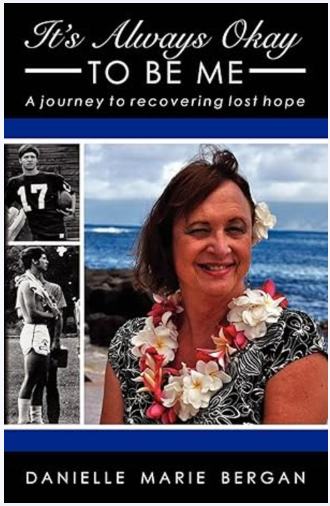ST. BONAVENTURE — Danica Roem approaches her role as a Virginia delegate the same way she approached being a professional politics reporter for a decade and a student journalist at St. Bonaventure University before that.
A disinterested, neutral, third party.
“Disinterested doesn’t mean you don’t engage, you don’t get thorough. You should be very interested in what you’re writing, but you have to have that level of detachment so you can analyze facts,” Roem, D-Prince William, told St. Bonaventure students, faculty and community members Thursday night on campus. “ … I don’t care what your opinion is. I care what the facts are.”
More than 200 people gathered in the Dresser Auditorium of the John J. Murphy Professional Building to hear Roem, a 2006 St. Bonaventure graduate and one of only a few openly transgender elected officials in the world, lead a wide-ranging discussion during a free event sponsored by St. Bonaventure’s Damietta Center for Multicultural Student Affairs.
Elected last November to represent her native 13th District in the Virginia House of Delegates, Roem, 33, spoke passionately and at-times humorously as she took questions from the audience before sticking around to speak one on one and take photos with dozens of students lined up to meet her.
While offering advice on both journalism and civic engagement, Roem talked about how reporter skills she first gained in lecture halls like the Dresser Auditorium both inspired and prepared her for her political career.
“The most important thing about being a reporter and an elected official is you are working for the people who either, as a reporter read your product, or as an elected official are your constituents,” Roem said.
Roem, who went by Dan Roem while attending St. Bonaventure, also spoke on her role as the first openly transgender person to ever be elected and seated in a U.S. state legislature.
Although noting being transgender brought plenty of media coverage and donations, Roem said she used the attention to also shed light on her campaign’s hyper-local issues, which included alleviating traffic congestion on Route 28 in Virginia.
“‘We can talk about transgender issues,’” Roem said she told an NPR reporter who wanted an interview during the campaign. “But we’re going to do that while we’re stuck in traffic on Route 28.”
While focused on issues like transportation and education, Roem is far from reluctant to be a “champion” of the transgender community.
A St. Bonaventure student asked Roem if transphobic insults made online or by political opponents faze her. Roem’s opponent in the election, then-incumbent delegate Bob Marshall, who called himself Virginia’s “chief homophobe,” referred to Roem with male pronouns.
While she can “brush it off,” Roem said her mind races to the transgender teens who have reached out to her in the last year and who also have heard the insults against her.
“What those people need at that point isn’t just for me to sit here and just talk to you about all of my campaign positions like water infrastructure. … At that point they need a champion and someone to say, ‘What you are doing is wrong and this is unacceptable because other people have to read that stuff, too. And it might not affect me in a visceral way, but it might just be that last thing that pushes someone further back into the closet or further off the edge,’” Roem said. “That’s why that kind of hate speech has to stop not just in the Commonwealth of Virginia, but across the United States, period.”


